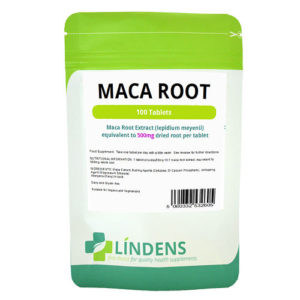If you would like to increase your chances of conceiving a child without medication, Maca may be able to help.
What Is Maca?
Maca is an herbaceous biennial root vegetable in the same family as cabbage. It is native to Peru, which has some of the harshest growing conditions in the world. Maca not only grows in these conditions but is the only plant that can thrive there, making it unique in its hardiness. As a supplement, it has a variety of health benefits, including increasing fertility.
The fertility benefits of Maca are nothing new. In fact, Maca has been used to promote conception for millennia. Maca contains more than 30 minerals and 60 phytonutrients that can help balance hormones in men and women alike. The nutrients in Maca also promote healthy sexual function, increase libido, and support the thyroid, the pituitary gland, and other normal physiological processes.
In addition to balancing hormones, Maca has been shown to improve egg quality and increase the number of viable embryos in women undergoing fertility treatments. A study published in the journal, Fertility and Sterility, found that women who took Maca had an increased probability of successful pregnancy and live birth.
Male Fertility
Maca’s fertility benefits aren’t limited to women; it’s also an excellent supplement for men. Studies have shown that Maca can improve sperm count, motility, and morphology. In one study, men who took Maca for four months saw significant improvements in their sperm quality compared to a placebo group.
If you and your partner are trying to have a child, you can maximise your chances if both of you start taking the supplement.
You can take Maca on its own or part of a wider supplement that also contains healthy vitamins and botanics. A good example is Wellman Conception by Vitabiotics. This male fertility supplement contains a generous amount of maca in each capsule, in recognition of the benefits for male fertility.
Where Is Maca Sold
Maca is available over the counter and without a prescription at health food stores and other places where dietary supplements are sold. It’s available in capsules or loose powder and is inexpensive. At Zoom Baby we have been selling Maca for a number of years. We pride ourselves on offering one of the purest types of the supplement you will find on the market at an excellent price. (All of our supplements are produced in the UK to the highest standards!)
Finding the Right Maca Supplement
At Zoom Baby, we’ve made it easy to get started with our Maca for Fertility tablets. Each bottle contains 100 tablets of 500mg pure Maca root powder, giving you over three months’ supply in one convenient package. We’ve designed these easy-to-swallow capsules to be gentle on your stomach while delivering all of Maca’s fertility-boosting benefits. The best part? You can take these alongside other fertility supplements without any issues. Our capsules contain only organic Maca root powder of the highest quality – the same powerful supplement that’s been helping couples conceive for generations. Whether you’re just starting your fertility journey or already taking other supplements, these tablets offer a simple way to add Maca to your daily routine.
How Is Maca Used
If you choose the capsules, you can take it just as you would a daily vitamin. The powder can be sprinkled over your food or dissolved in your favourite beverage. It can take time before you start seeing the benefits of this natural supplement, as long as 3-6 months for some people, though others start noticing benefits faster. Maca is all natural and contains no synthetic chemicals, and it has been trusted for thousands of years.
Overall, Maca is a powerful and natural supplement that can benefit both men and women’s fertility. It has been used for centuries in traditional medicine and is now gaining popularity in the western world as a potent fertility enhancer. Give it a try and see if you notice the benefits too.
Photo by Anthony Cunningham for Zoom Baby
Zoom Baby is a leading supplier of Pregnancy Tests and Ovulation Test Kits
This post was originally published in 2015. It was last updated in December 2024.






